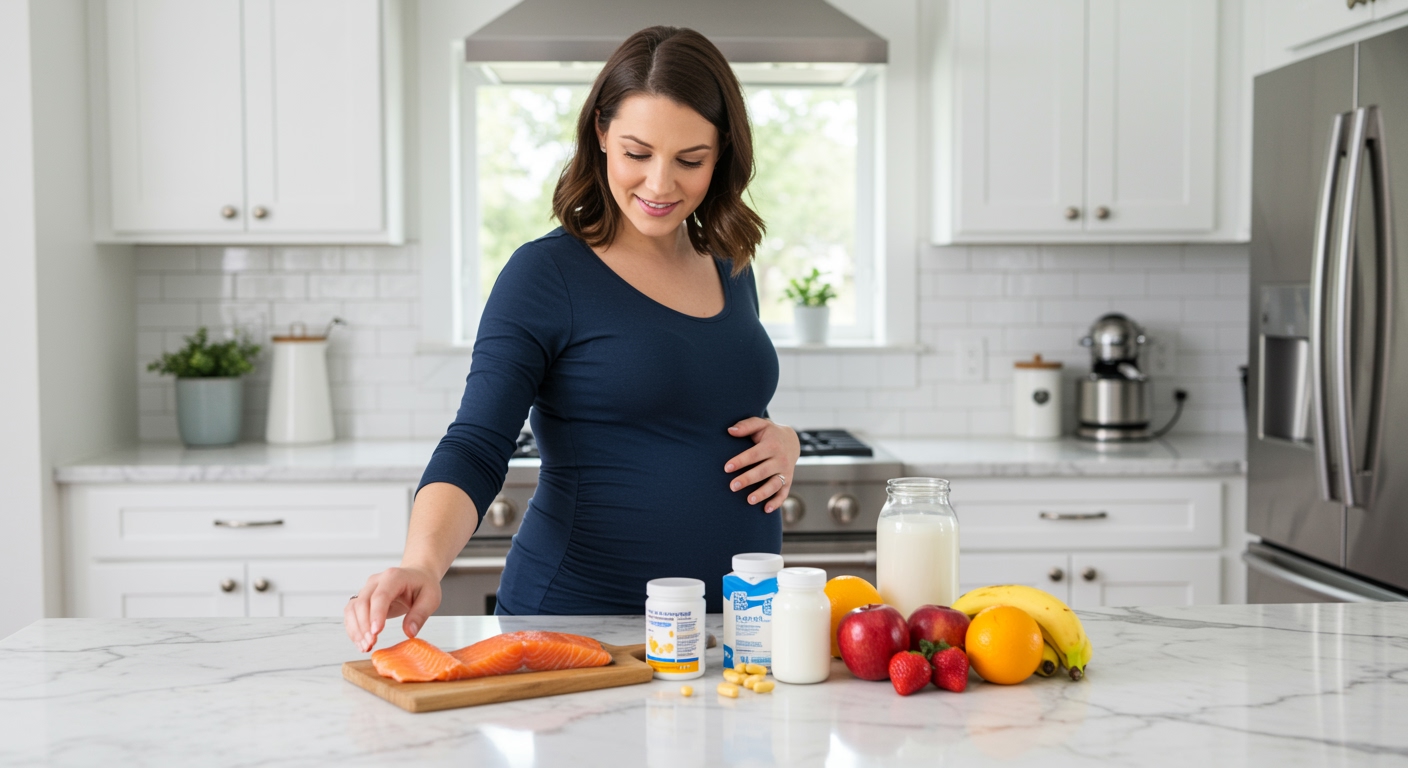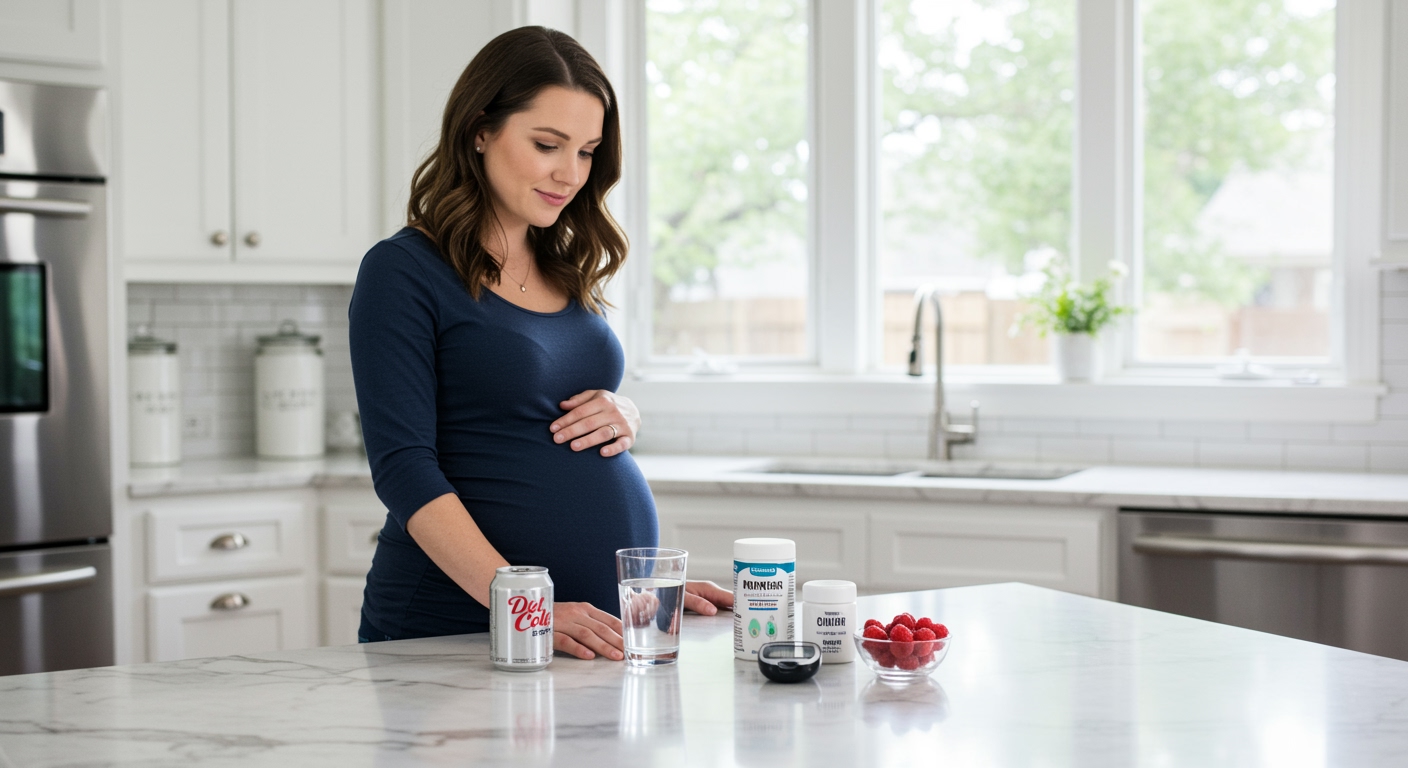✪ Key Highlight: Children of mothers with higher vitamin D levels during pregnancy show superior memory, attention, and problem-solving skills.
Introduction
Most pregnant women worry about eating the right foods for their baby.
But new research reveals that vitamin D levels during pregnancy directly shape your child’s brain power for years to come.
Hi, I’m Abdur, your nutrition coach and today I’m going to analyze this groundbreaking study that shows how maternal vitamin D during pregnancy affects children’s cognitive abilities at ages 7 to 12.
What Did This New Research Discover?
Scientists analyzed data from over 900 mother-child pairs across the United States through the ECHO study.
They measured vitamin D levels in mothers’ blood during pregnancy and then tested their children’s cognitive abilities years later.
The results were striking.
Children whose mothers had higher vitamin D levels during pregnancy performed significantly better on tests measuring memory, attention, and problem-solving skills.
This connection was strongest among Black families, who also face higher rates of vitamin D deficiency.
The study was published in The American Journal of Clinical Nutrition, adding credibility to these important findings.
Researchers found that early pregnancy vitamin D levels were especially crucial for brain development.
✪ Fact: Black families face vitamin D deficiency rates up to 80% during pregnancy compared to 40% in other populations.
How Does Vitamin D Affect Brain Development?
Vitamin D does much more than build strong bones.
This powerful nutrient acts as a hormone that regulates immune function and reduces inflammation throughout the body.
During pregnancy, vitamin D crosses the placenta and directly influences your baby’s developing brain.
It helps protect the nervous system and supports the formation of neural connections that affect learning and memory.
Animal studies show that vitamin D deficiency during pregnancy causes significant changes in brain structure.
Rats born to vitamin D-deficient mothers had thinner brain cortices and enlarged ventricles.
These structural changes directly impact how the brain processes information and forms memories.
✪ Note: Vitamin D receptors are found throughout the brain, showing its direct role in neural development.
What Other Studies Support These Findings?
Multiple research studies confirm the link between maternal vitamin D and child brain development.
A study in The Journal of Nutrition found that every 10-ng/mL increase in maternal vitamin D was linked to a 1.17-point higher IQ in children.
This improvement appeared in both verbal and nonverbal intelligence scores.
Another study published in Pediatrics showed that vitamin D insufficiency during pregnancy nearly doubled the risk of language problems in children.
Children of vitamin D-deficient mothers showed clinically significant language difficulties at ages 5 and 10.
A comprehensive review in the journal Nutrients analyzed both animal and human studies on this topic.
The review confirmed that low prenatal vitamin D affects brain structure, function, and behavior in offspring.
✪ Pro Tip: Vitamin D effects on brain development appear strongest when measured during the first trimester of pregnancy.
Why Are Some Groups At Higher Risk?
Vitamin D deficiency affects different populations unequally.
Black families face the highest rates of vitamin D deficiency during pregnancy.
Darker skin contains more melanin, which blocks vitamin D production from sunlight.
This natural protection against sun damage unfortunately reduces the body’s ability to make vitamin D from UV rays.
Geographic location also plays a role in vitamin D status.
People living in northern climates or areas with limited sunlight face higher deficiency rates.
Dietary factors contribute to the problem since few foods naturally contain significant amounts of vitamin D.
✪ Fact: Only fatty fish, egg yolks, and fortified foods provide meaningful amounts of dietary vitamin D.
What Can Pregnant Women Do?
The good news is that vitamin D deficiency is completely preventable.
Healthcare providers should test vitamin D levels early in pregnancy, especially for high-risk groups.
Blood levels of 25-hydroxyvitamin D should be at least 30 ng/mL for optimal health.
Many pregnant women need vitamin D supplements to reach adequate levels.
The recommended daily intake during pregnancy is 600 IU, but many experts suggest higher amounts.
Safe sun exposure can help boost vitamin D levels, but supplementation is often necessary.
Fatty fish like salmon, fortified milk, and egg yolks provide some dietary vitamin D but rarely enough to prevent deficiency.
✪ Pro Tip: Vitamin D3 supplements are more effective than D2 for raising blood levels during pregnancy.
The Bottom Line
This research shows that adequate vitamin D during pregnancy is crucial for your child’s cognitive development.
Prevention is always better than trying to fix problems later, and vitamin D supplementation offers a simple, low-cost way to support your baby’s brain health.
I encourage you to share your thoughts about vitamin D during pregnancy in the comments below – have you had your levels tested, or do you have questions about supplementation?
References
At NutritionCrown, we use quality and credible sources to ensure our content is accurate and trustworthy. Below are the sources referenced in creating this article:
- Science Alert: Vitamin D During Pregnancy Linked to Cognitive Boost in Children
- PMC: Vitamin D and the Developing Brain
- Frontiers in Endocrinology: Vitamin D During Pregnancy and Infancy
- Pediatrics: Maternal Serum Vitamin D Levels During Pregnancy
- Seattle Children’s: Vitamin D Levels During Pregnancy Linked with Child IQ





